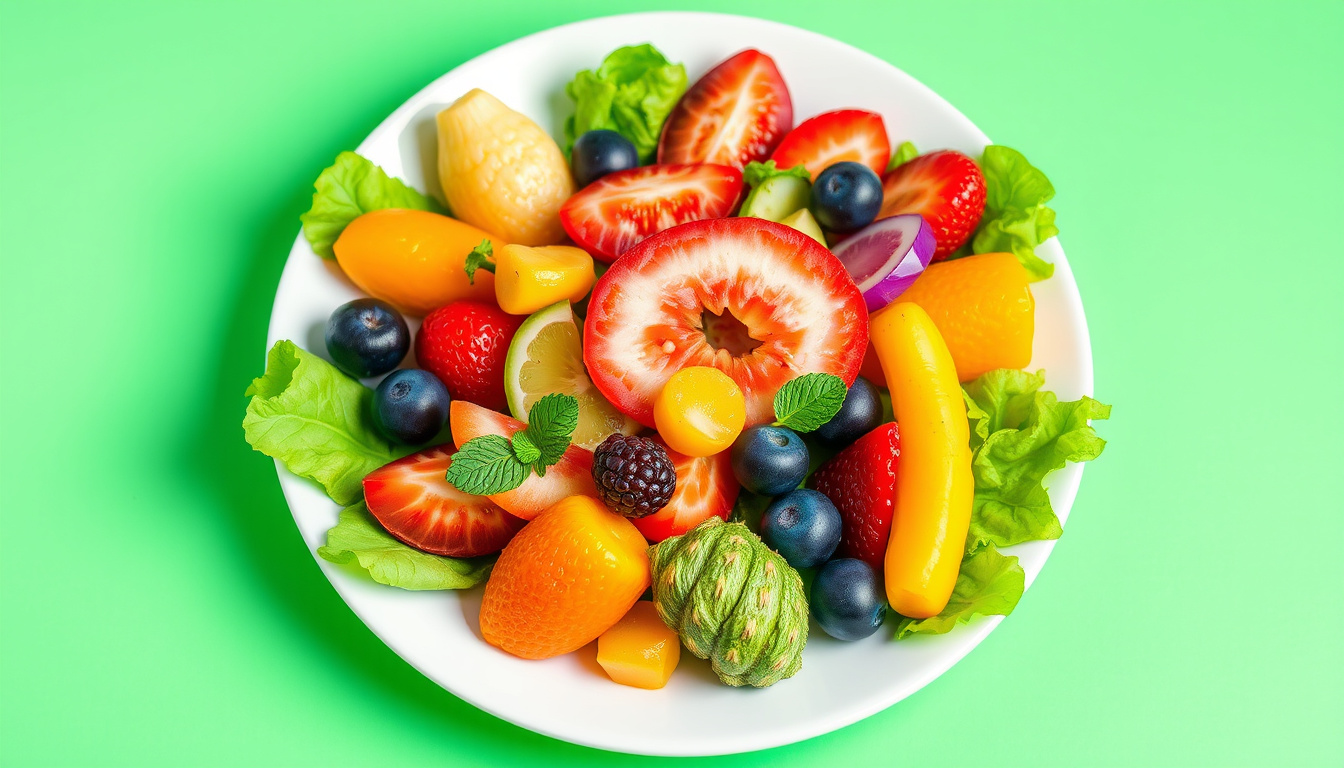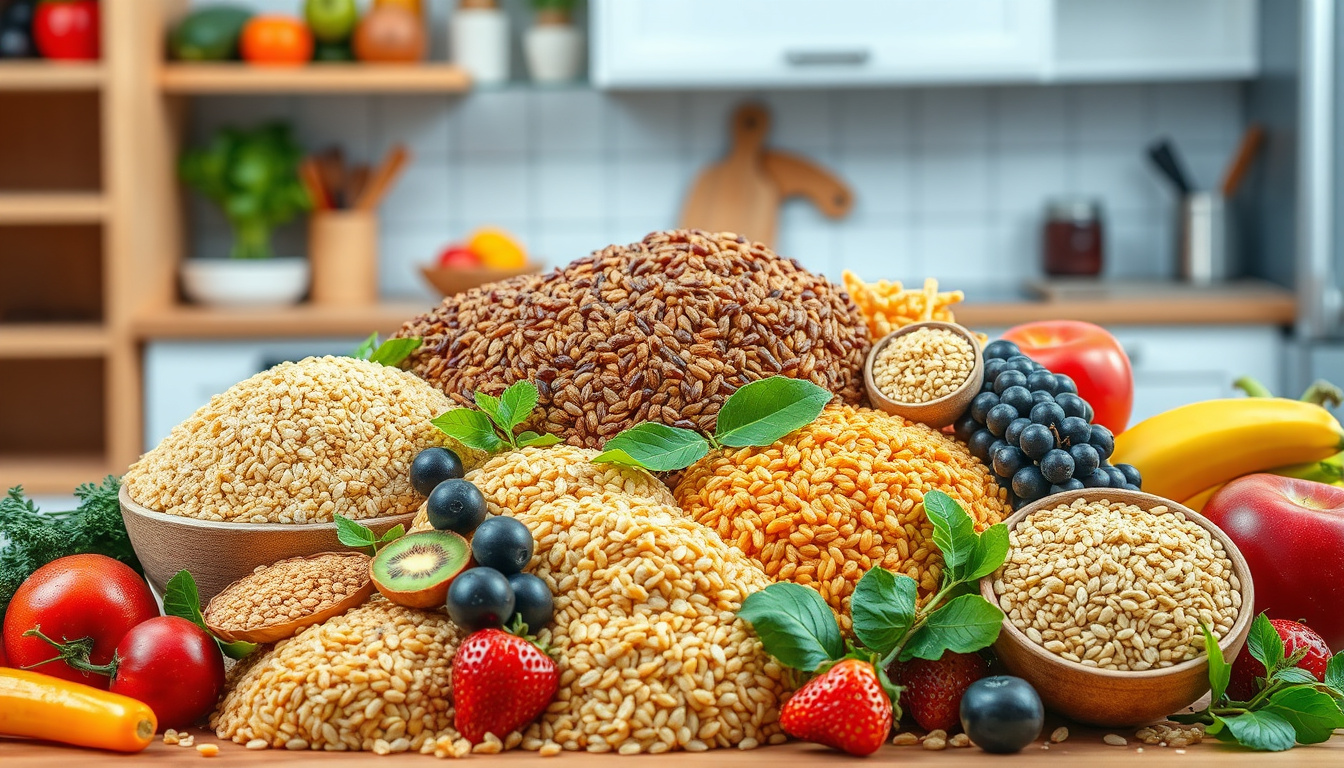A balanced diet is the base for good health and well-being.
It means eating many kinds of food in the right amounts.
This plan gives your body the fuel it needs.
It helps the body work well and the mind stay clear.
If you want a better life, try using simple ideas that can change your daily eating habits.
Why is a Balanced Diet Important?
Today, many foods come in processed form and sugary snacks are close at hand.
Sticking to a balanced diet can seem hard, but good food builds your body’s defenses.
It helps manage your weight and cuts the risk of chronic diseases such as heart issues, diabetes, and some types of cancer.
The World Health Organization says a balanced diet includes fruits, vegetables, whole grains, lean proteins, and good fats to support a healthy life.
Key Components of a Balanced Diet
Knowing the key parts of a balanced diet helps you pick the right foods.
These parts are:
• Fruits and Vegetables – Packed with vitamins, minerals, fiber, and antioxidants.
• Whole Grains – Foods like oats, brown rice, and whole wheat bread that give steady energy.
• Proteins – Lean meats, fish, beans, lentils, and nuts for muscle work and defense.
• Good Fats – Foods such as avocados, olive oil, nuts, and seeds to support a healthy heart.
• Dairy or Alternatives – Milk, yogurt, cheese, or plant milk with extra calcium and vitamin D.
• Low Sugars and Salt – Eating less helps keep blood pressure in check and supports good health.
Practical Tips for Maintaining a Balanced Diet
Changing your daily eating may be simple if you use clear steps. Here are some ideas:
- Plan your meals ahead.
Set aside time each week to choose foods from all groups. - Fill your plate with many colors.
Let half your plate hold fruits and vegetables that bring many nutrients. - Cut back on processed and fast foods.
Eat less food with too much sugar, bad fats, and salt. - Pick whole foods over refined ones.
Switch white bread, white rice, and pastries for whole-grain versions. - Drink water throughout the day.
Water is better than sugary drinks. - Watch your portion sizes.
Small portions help you avoid eating too much. - Use different protein sources.
Mix animal and plant foods to get needed nutrients. - Cook meals at home more often.
At home, you control ingredients and salt levels. - Check food labels carefully.
Read them to help you choose healthy foods. - Notice your hunger signals.
Eat when you are hungry and stop when you feel full.
Sample Day in a Balanced Diet
Here is one way to plan a day:
• Breakfast: A bowl of oatmeal with berries, a small handful of nuts, and a spoon of yogurt.
• Snack: An apple paired with a bit of almond butter.
• Lunch: A salad with grilled chicken, fresh greens, cherry tomatoes, and cucumbers, dressed in olive oil and lemon.
• Snack: Carrot sticks dipped in hummus.
• Dinner: Baked salmon with quinoa and steamed broccoli.
• Optional: A small piece of dark chocolate as dessert.
Common Challenges and How to Overcome Them
Changing eating habits can be hard when days are busy, budgets are tight, or you often eat out. Here is how to deal with these issues:
• Time Limits – Cook meals in larger portions during the weekend so you have food ready for busy days.
• Budget Needs – Buy fruits and vegetables that are in season, shop in bulk, and choose budget-friendly proteins like eggs and beans.
• Eating Out – When dining out, choose grilled items over fried. Ask for sauces on the side and keep portions small.
Improving Your Wellness with a Balanced Diet
Switching to a balanced diet is a change for the long run.
Good food can bring more energy, lift your mood, help your digestion, and reduce the risk of many diseases.
Small, steady changes, like adding one more serving of vegetables a day or swapping a processed snack for fresh fruit, can make a big difference over time.
FAQs about a Balanced Diet
-
What is a balanced diet?
A balanced diet means eating many kinds of food in amounts that give you all the vitamins, minerals, carbohydrates, proteins, and fats your body needs. -
How do I start a balanced diet?
Begin with small steps.
Try adding fruits and vegetables, choose whole grains, and cut down on processed items.
Plan your meals and watch your portions. -
What are the risks of not following a balanced diet?
Poor nutrition can cause missing vitamins and minerals, lower your body’s defense, lead to weight problems, and increase the risk of long-lasting diseases.
Conclusion and Call to Action
Changing your eating habits is one of the best steps for a healthier life.
When you choose many nutritious foods and eat with care, you build a strong base for long life and steady energy.
Do not wait until health issues show up.
Start today with small, mindful changes.
Your body and mind will feel the improvement with more energy and better well-being.
Take control of your health now—adopt a balanced diet and enjoy a life that is both healthy and happy!




